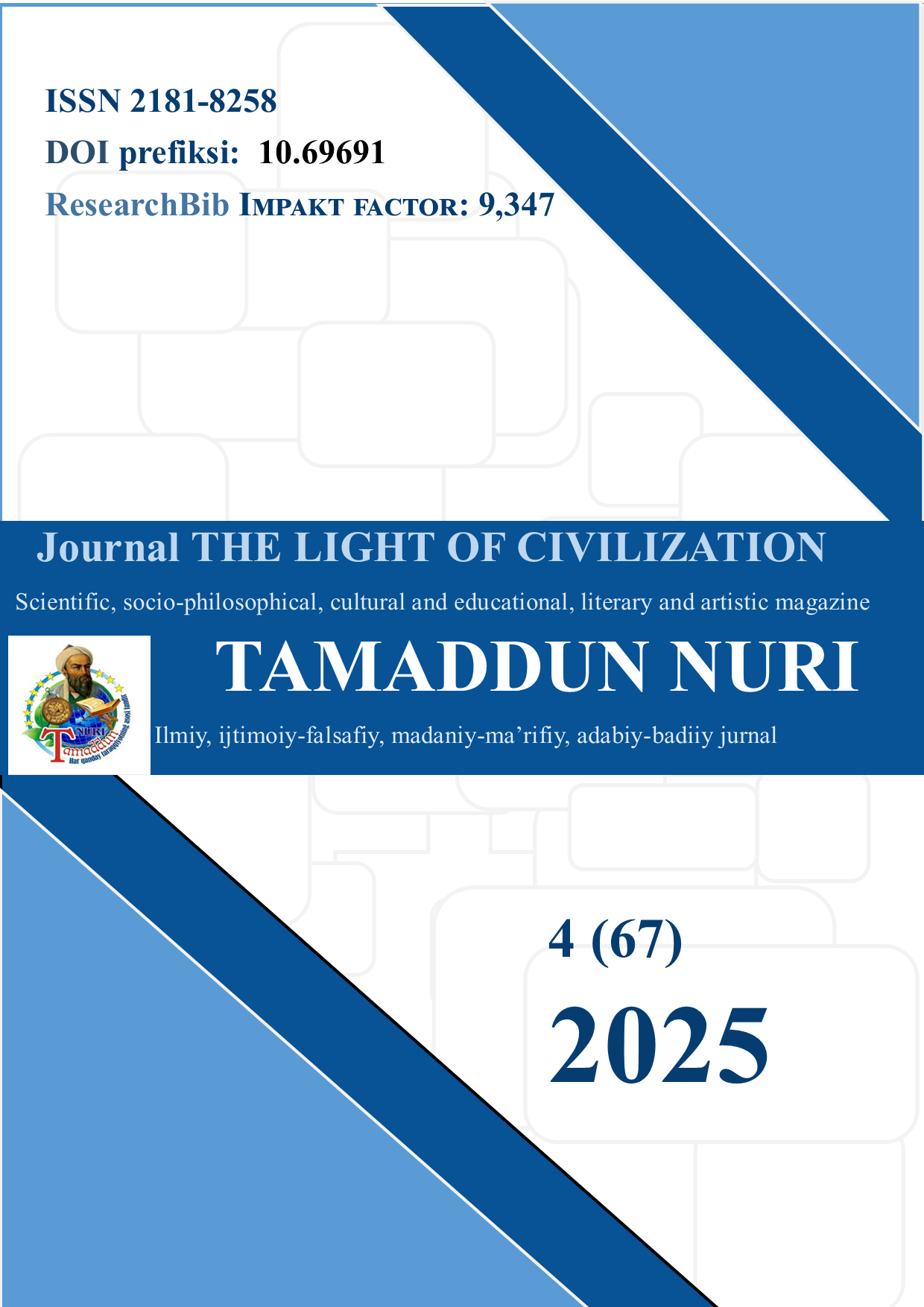МЕЖКОНФЕССИОНАЛЬНОЕ СОГЛАСИЕ – ФИЛОСОФСКИЕ ОСНОВАНИЯ РАЗВИТИЯ ГРАЖДАНСКОГО ОБЩЕСТВА
DOI:
https://doi.org/10.69691/2k8kzx73Ключевые слова:
Межконфессиональное согласие, социальная интеграция, социальная стабильность, плюрализм, общественное сознание, толерантность, секуляризм, религиозный диалог, эпистемологический, межкультурная коммуникация, аксиология.Аннотация
В статье анализируется межконфессиональное согласие как философская и социальная основа развития гражданского общества. Идеи толерантности, терпимости и религиозного диалога играют важную роль в формировании гражданского сознания в современном обществе.
Библиографические ссылки
Habermas, J. (1984). The Theory of Communica-tive Action, Vol. 1. Boston: Beacon Press.
Forobiy, Abu Nasr Fozil odamlar shahri. Abu Nasr Forobiy / Tarjimonlar Abdusodiq Irisov, Mahkam Mahmudov, Urfon Otajon. Mas’ul muharrirlar M.Xayrullayev, M.Jakbarov. – Toshkent: Yangi asr avlodi, 2016. – 320-b.
Yusuf Xos Hojib. Qutadg‘u bilig. T:. Cho’lpon. 2007.
O‘zbekiston Respublikasi Oliy Majlisi. (2021). Vijdon erkinligi va diniy tashkilotlar to‘g‘risidagi Qonun.
Global Peace Index (2023), Pew Research Center (2022), USCIRF Religious Freedom Report (2023).
Habermas, J. (1984). The Theory of Communicative Action, Vol. 1. Boston: Beacon Press.
Nussbaum, M. (2011). Creating Capabilities: The Human Development Approach. Harvard University Press.
Yusuf Xoss Hojib. Qutadg‘u bilig. T.: Cho’lpon. 2007.
Fox, J. (2013). An Introduction to Religion and Politics: Theory and Practice. Routledge.
Загрузки
Опубликован
Выпуск
Раздел
Лицензия
Copyright (c) 2025 Журнал Тамаддун Нури

Это произведение доступно по лицензии Creative Commons «Attribution-NoDerivatives» («Атрибуция — Без производных произведений») 4.0 Всемирная.



